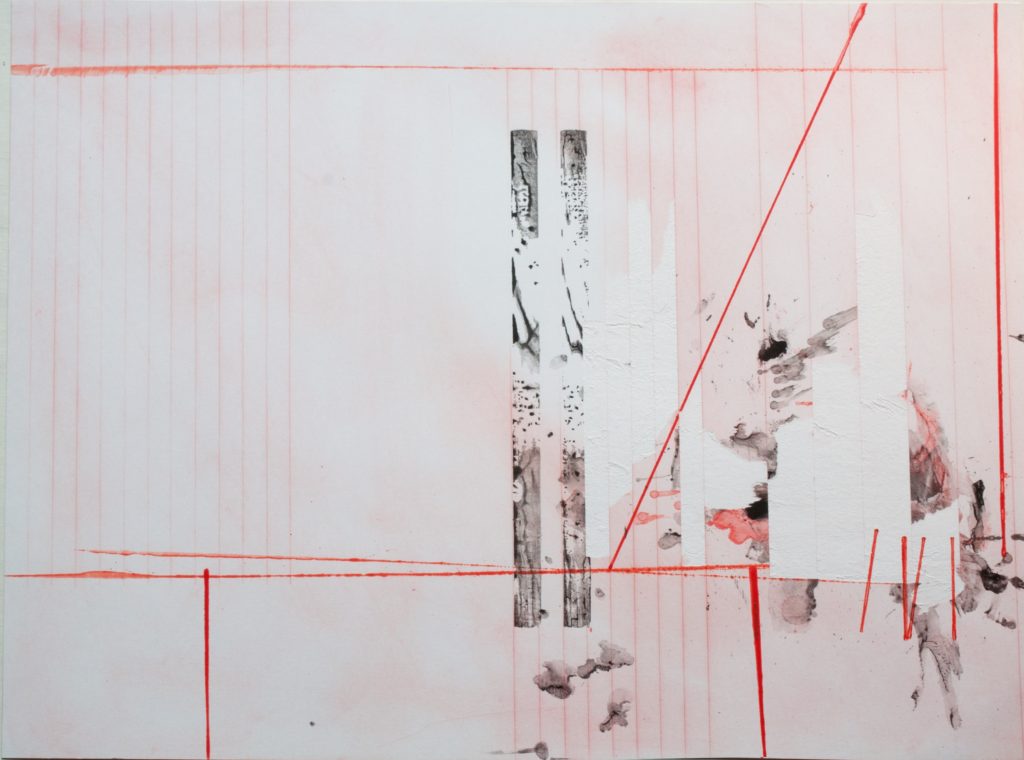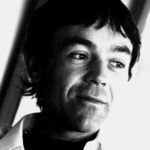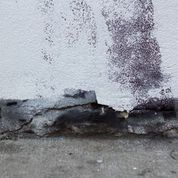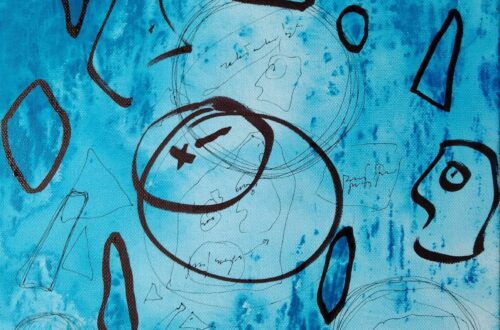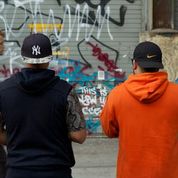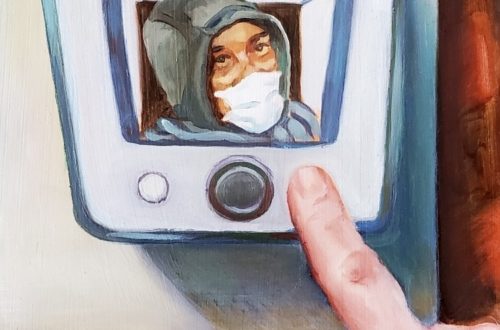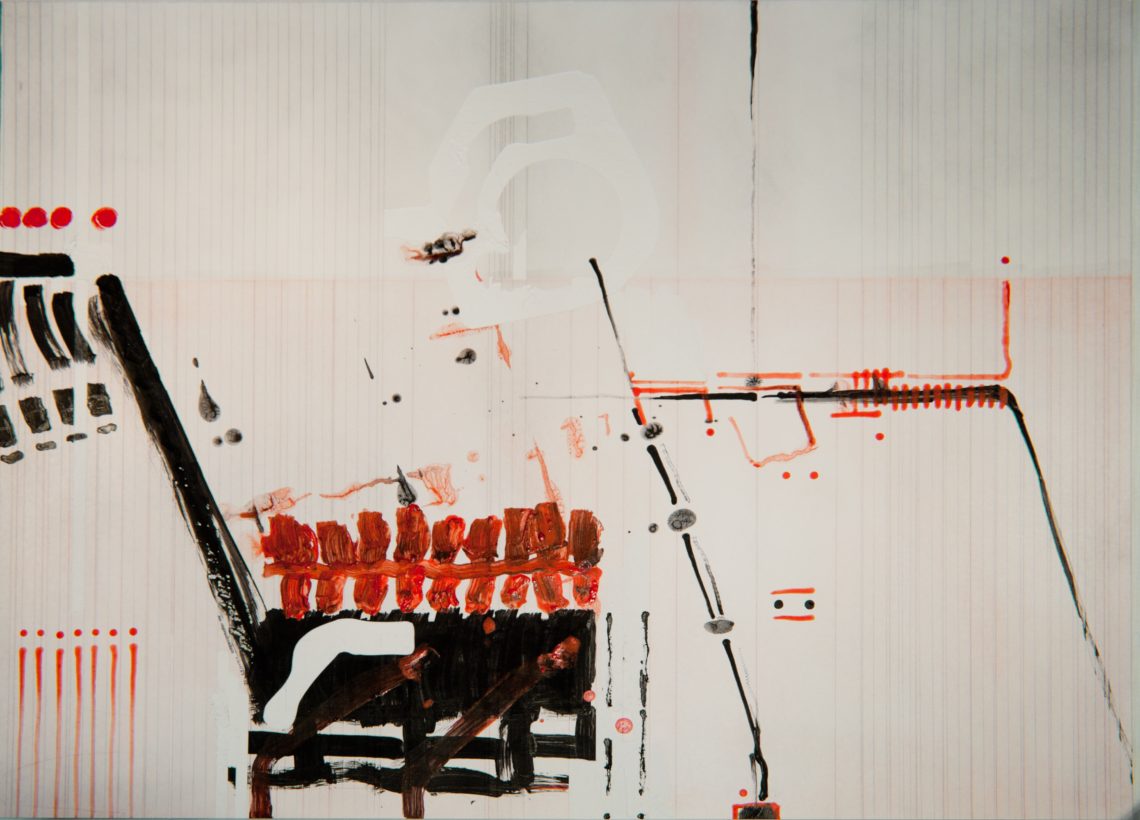
"Orange" and "South 2" by Michel Vachey (Translated from the French by S. C. Delaney and Agnès Potier)
ORANGE
Air France stewardesses are in danger
carmine strokes the dried blood near some petals slams into the sink of the crime now softly blazes on crimson curtains
pink only belongs to pink roses
why does orange gall us, revolt us, sicken our stomachs and our hearts to the point of despairing of a varnished and vanquished rage?
color that, henceforth, symbolizes most of all chemistry, which is the plastic reality of modern life beyond any philosophical and political concern, the obsessively familiar brand of industry reducible to its emergence without art, wholly practical and for the sale
what person, without ridicule, without incurring scorn for emergency ideologies, could have denounced as dreadful this orange invasion, the objective obscenity of an expansion?
orange, all the pure rising up of a techno-chemistry, the pure acquiescence to pure product, the terror that no longer terrorizes, the mild death in its utensiled forms and its public renderings, the lawful homogenization of looks
yet some flowers, some marvelous animals are orange, but their living and integral beauty does not decompose
even before the modern-day orange invasion, people here did not commonly wear orange
are there colors that aren’t easily transferred, that aren’t well received?
yes, depending on the place and the people, the era
some colors also need, much more so than others, a means of bearing them (regardless of the rituals that have their grace, or a formalism that transforms everything)
tender purple, ecclesial, so ugly or kitsch when painted on the front of a shop, when setting off inelegance, so drab or depressing on old women’s clothes
purple, mauve, you succeed at scaring painters
between dark red and orange, vermilion, an intermediate red-yellow (one thinks less of yellow than of the nauseating proximity of orange), a red truly red, real and convincing, without luster, visible like anything is visible, life that throws off abomination and joy
vermilion is there, without proof or proving, dropped down from flowers and from fire, on the verge of orange, like an irritation to overcome, a slippage to prevent—in short, the opposite of temptation
here, orange denotes the chromatic view of “shared” murder, the absence of community, its brute presence, its thickest indifference, one of those fundamental omissions that has no name or unfortunately fortunately, political interest.
Fire-starter of the Méharis [1]
30 08 83
[1] Camel corps whose members ride méhari, a type of dromedary used for patrols and transport.
******
ORANGE
les hôtesses d’Air-Inter sont en danger
le carmin lisse le sang sec vers des pétales s’écrase le lavabo du crime flamboie maintenant doucement aux rideaux cramoisis
le rose n’appartient qu’aux roses
pourquoi l’orange nous irrite, nous révulse, nous retourne le coeur et l’estomac jusqu’au désespoir d’une fureur mate et matée?
couleur qui désormais symbolise, le plus la chimie, qui est la réalité plastique de la vie moderne par-delà toute considération philosophique et politique, la marque familière obsédante de l’industrie réductible à son émergence dépourvue d’art, au côté «pratique» et à la vente
quelle personne, sans ridicule, sans encourir le mépris des idéologies d’urgence, aurait pu dénoncer comme terrible cette invasion orange, l’obscénité objective d’une expansion?
orange, tout le surgissement pur d’une techno-chimie, le consentement pur au pur produit, la terreur qui ne terrorise plus, la mort tiède dans ses formes ustensilaires et ses enduits publics, l’homogénéisation licite des regards
pourtant des fleurs, des animaux magnifiques sont orange, mais leur beauté vivante et totale ne se décompose pas
même avant l’oppression orange moderne, ici l’homme ne portait pas couramment l’orange
est-il des couleurs qui se transfèrent difficilement, s’accueillent mal ?
oui, selon le lieu et les gens, l’époque
il faut aussi pour certaines couleurs, beaucoup plus qu’avec d’autres, une manière de les porter (indépendamment des rituels qui ont leur grâce, ou un formalisme qui transforme tout)
violet amoureux, ecclésial, si laid ou kitsch lorsqu’il peint la façade d’un magasin, quand il pare l’inélégance, si fade ou triste en habits de la vieillesse féminine
violet, mauve, vous réussissez à faire peur aux peintres
entre le rouge sombre et l’orange, le vermillon, un rouge-jaune intermédiaire (on pense moins au jaune qu’à la proximité nauséeuse de l’orange), un rouge effectivement rouge, réel et vraisemblable, sans splendeur, visible comme serait visible n’importe quoi, la vie qui repousse ailleurs l’abomination et la joie
le vermillon est là, sans preuve ni épreuve, tombé des fleurs et du feu, au bord de l’orange, comme une irritation à vaincre, un glissement à empêcher, le contraire de la tentation, en somme
ici, orange désigne l’aspect chromatique du meurtre «en commun», l’absence de la communauté, sa présence brute, son indifférence la plus pâteuse, l’une de ces négligences fondamentales qui n’ont pas de nom, ni d’intérêt politique malheureusement heureusement.
L’Incendiaire des Méharis
30 08 83
****** ****** ******
SOUTH 2
Autofascination of the artist for his work, spirited scatology.
and this southern wind stirred up all the foul smells of ravaged gardens
Indifferent beauty. Calm. Where all the furies are calmed.
Sounds reached here, optified, paper.
Perplexum[1] mobile. The eye gets lost in the distance, nose to the wall.
Thought is fresh. Like the walls.
Between subversion and immersion. Nothing and nothing.
Sun of the mathematical lizard. Collusion of bounds and spaces.
Venetian stocks, all the world’s cultures, or flavors, chemistries, blinds. Small Puerto Rican–inflected French villages,
half-summers of fancy. Inertion.
Sudden arbitrary union of debris-turned-agents.
But the debris is not debris, the whole city is ruin and invention. Even destroyed.
24 11 80
[1] Latin word meaning thicket.
******
SUD 2
L’autofascination de l’artiste pour son oeuvre, scatologie nerveuse.
et ce vent du Sud excitait toutes les vilaines odeurs des Jardins ravagés
La beauté indifférente. Le calme. Où toutes les fureurs sont calmées.
Les bruits arrivés ici, optifiés, papier.
Perplexum mobile. L’oeil se perd au loin, nez au mur.
La pensée est jeune. Comme les murailles.
Entre subversion et immersion. Rien et rien.
Soleil du lézard mathématique. Collusion des termes et des intervalles.
Stocks vénitiens, toutes les cultures du monde, ou saveurs, chimies, stores. Petits villages de France portoricanisés, demi-étés de l’imaginaire. Inertion.
Soudaines liaisons arbitraires de débris devenus actants.
Mais le débris n’est pas débris, toute la ville est ruine et invention. Même détruite.
24 11 80
Michel Vachey (1939–1987) was an experimental French artist and author. He was a founder of the Textruction movement, which sought to blur the line between image and text, and his writing likewise probes expectations of genre. His work includes poetry, novels, collages, and hybrid story-essays.
S. C. Delaney has translated, with Agnès Potier, Tony Duvert’s prose collections Odd Jobs and District (Wakefield Press). His work has been featured in, among other places, Hayden’s Ferry Review, Fiction International, and The Paris Review: The Daily.
Agnès Potier was born and raised in Paris and now lives in the Pyrenees. She is currently translating, with S. C. Delaney, the uncollected and unpublished texts of Michel Vachey, some of which may be found in The Literary Review, Asymptote Journal, and Kenyon Review Online.
Artwork by Michel Vachey.
